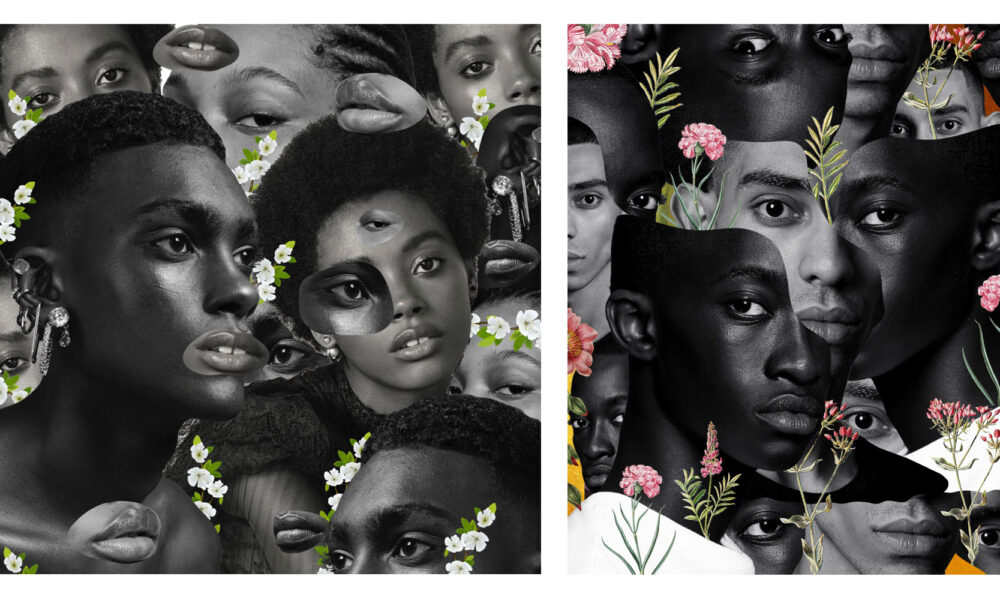Last April, I attended a birthday party for a friend. Rather than looking back at the shared laughter and happiness of this gathering, I remember this night for a white person who, after complaining at length about their “difficult” straight hair, gestured toward me and my “easy” curls. Without my consent, they touched my hair. After two years of COVID-19 measures that kept us all physically apart, this interaction almost seems funny. Veering into old stereotypes, this encounter relies on direct, imposing, and racializing contact. More seriously, it reminds me of my childhood, where countless non-Black people would touch my hair––invading my space and reducing my humanity to that of a spectacle. I don’t share stories like these often. I’m too culpable of forgetting, of giving second chances, of rolling my eyes (later). That said, this is the brief history of my relationship with my hair.
I was born in Toronto in the early 2000s with curly hair budding off my head. I have stark hair-related memories of kindergarten and elementary school, especially those that involved a carpet, a shared and “open” space for learning. I’d sit, ever the keener, closer to the front. Had I learned about economics, I would have charged people for touching my hair, like a zookeeper would do for pesky tourists who itch to pet goats or play with monkeys. What I intuited, but didn’t have the words for as a child, was that embodying Blackness in spaces not designed for Black people would always be challenging, soul-destroying. The mental and physical toll of racism takes up time that should be devoted to self-love and broader transformation. I’m in recovery.
Comments about my “easy” hair pile up, they recycle in mutant forms. Classmates begged me: “Straighten your hair!” Upon hearing that I played tennis, a teacher oddly remarked, “Aren’t you wearing a wig?” I don’t ignore the off-the-cuff adjectives either: Messy, exotic, ethnic, unprofessional, distracting, crazy, clown-like. I must be glad that these people are actually just jealous. That’s why they get perms, right?! That’s why they––you know who you are––appropriate Black women’s hairstyles! If I read Scottish and Irish history more closely, maybe I’d realize that dreads are common across cultures.
This will not be the first reflection on hair discrimination. School boards in Ontario are only now starting to move away from their outdated dress codes that included, for example, bans on durags––or as they used to call them, “gang-related” attire that “incites violence.” Black women worldwide specifically face misogynoir for their hair, with dangerous economic implications in the workplace. In 2014, Lettia McNickle’s boss sent her home from her job at a Montreal steakhouse because of her cornrows: Only in 2018 did she receive justice from the Quebec Human Rights Commission. Canadian politicians are still considering bills like Ontario Member of Provincial Parliament Jill Andrew’s “Protecting Our Crowns”, seeking to mandate “culturally-responsive” training for Black, Indigenous, and racialized hair, in hairstyling programs.
Both sides of my family have natural curls. My grandfather often speaks of how back in 1950s Italy, barber shops didn’t have running water so he would have to douse his hair with ice-cold fountain water to care for it. Today, the most valuable currency between me and my siblings is compliments on each other’s hair. My sister has tried variations on her classics: Her fantastic locks are now dyed so brightly that they light up the streets of Kingston, Ontario. My brother uses infinite amounts of Black hair products that can only be found at our suburb’s one Walmart on the other side of town. He takes forever to do his hair that is fully grown out––adding a few inches to his height. In full-day endeavours punctuated by patties and oxtail, we drove 30 minutes to Brampton to get our hair done. I’ve flirted with continuing to grow my hair––I loved my Afro days––and with keeping a consistent fade. What I would prefer is to make this decision in a world that wasn’t anti-Black, and in everyday spaces that don’t tinge every comment with racial pretension, prestige, and power.









Pingback: Tapping into my first love - Black News